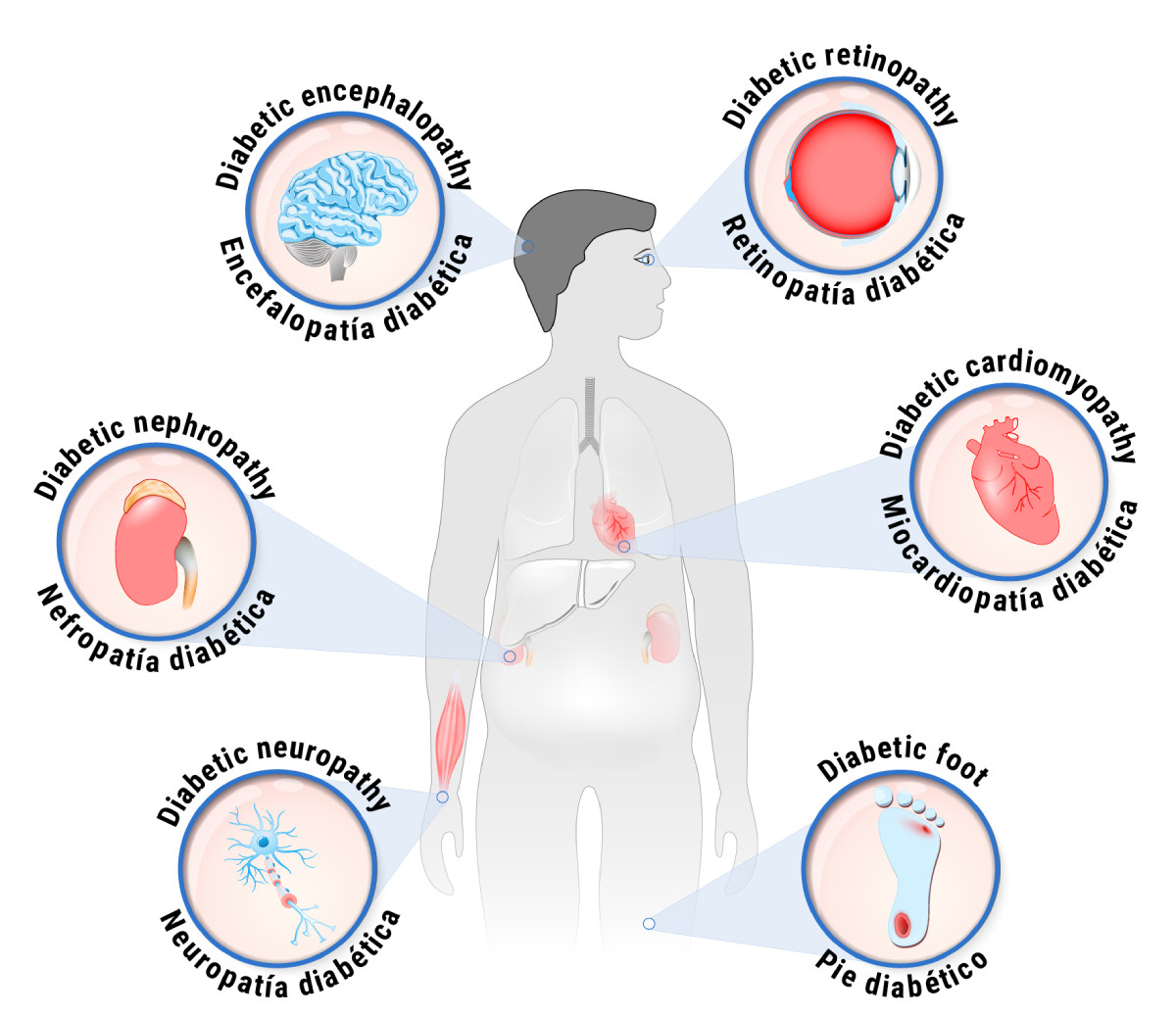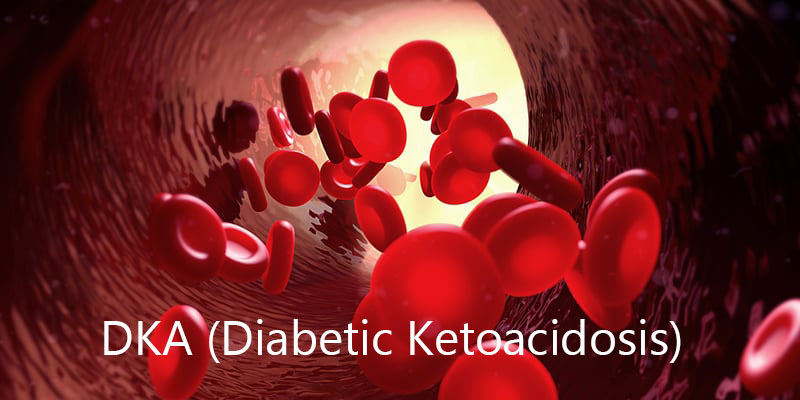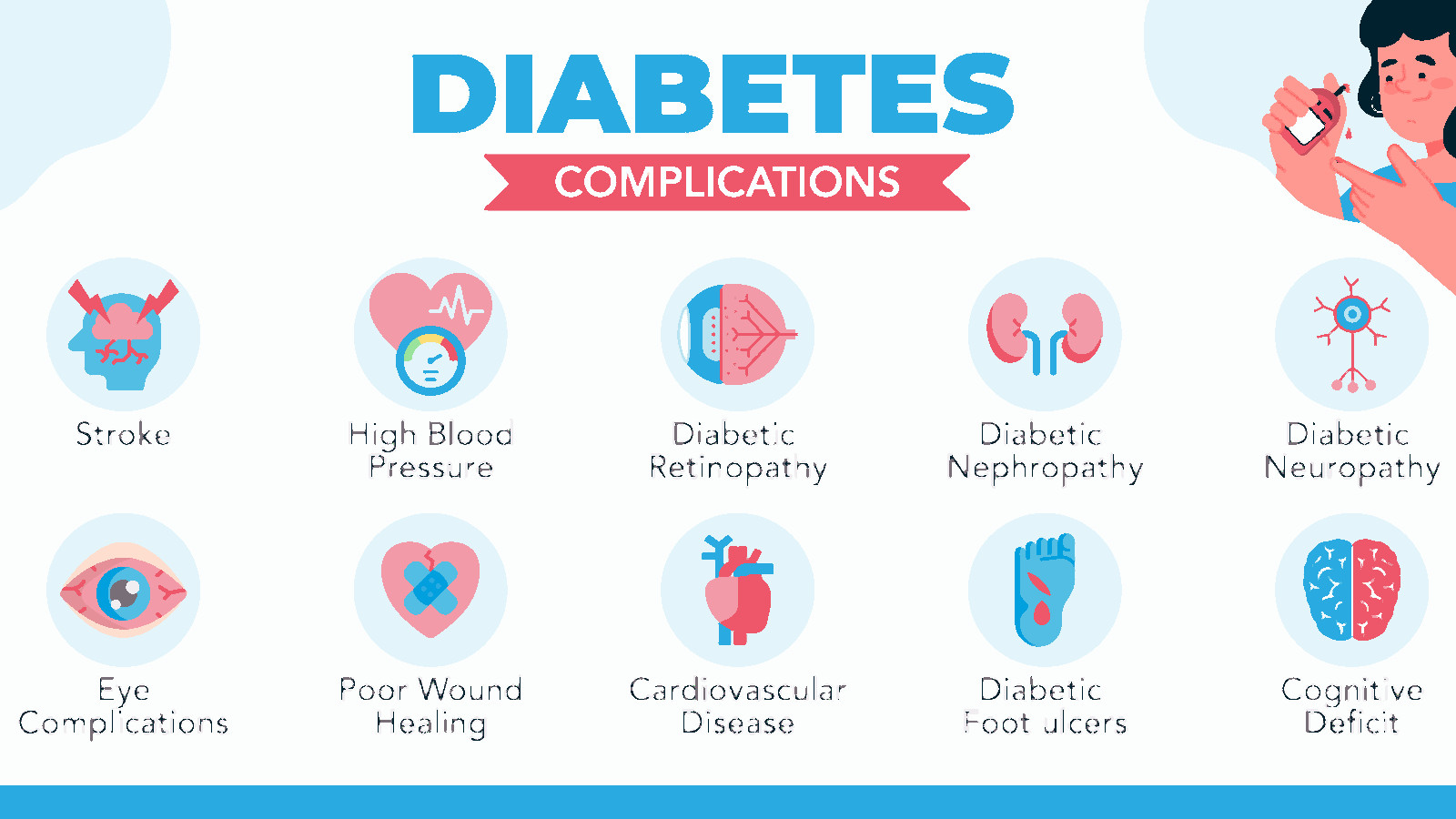Individuals with diabetes face the risk of complications, with the most common ones affecting the heart, blood vessels, eyes, kidneys, nerves, teeth, and gums. Without proper self-care or treatment, prolonged elevated sugar levels can lead to chronic complications associated with diabetes. Over time, these conditions can lead to impaired blood vessel function, paving the way for more severe complications associated with diabetes

Complications of diabetes
Complications in individuals with diabetes can be categorized into two groups:
Group 1: Acute Complications
Acute complications manifest in individuals with either low blood sugar or severe hyperglycemia, often accompanied by Diabetic Ketoacidosis (DKA).
- Hypoglycemia
Hypoglycemia, characterized by blood sugar levels below 70 mg/dL, can result in symptoms such as palpitations, fatigue, confusion, tension, fainting, and in severe cases, seizures and loss of consciousness. Individuals with diabetes, particularly those using medication or insulin injections to lower blood sugar, are at a heightened risk of experiencing low blood sugar. - Hyperglycemia
Hyperglycemia with ketone acid buildup, known as Diabetic Ketoacidosis (DKA), is characterized by elevated blood sugar levels accompanied by acidic blood. This emergency condition primarily affects individuals with type 1 diabetes (insulin-dependent), with blood sugar levels exceeding 250 mg/dL. High blood sugar prompts the body to produce ketones, highly acidic substances released into the bloodstream, leading to acidification of the blood. Symptoms may include increased thirst, frequent urination, confusion, deep breathing, shock, loss of consciousness, and the condition can be life-threatening.
Group 2: Chronic complications
Chronic complications are frequently observed in individuals with diabetes and typically develop over the long term. These complications often involve the deterioration of blood vessels supplying various organs such as the brain, heart, kidneys, eyes, and peripheral blood vessels, leading to potential blockages—particularly in the thigh area, contributing to foot ulcers in individuals with diabetes. Chronic complications are further categorized into those affecting large blood vessels and those affecting small blood vessels.
- Complications in large blood vessels
Complications in large blood vessels (Macrovascular) arise in individuals with diabetes who maintain elevated blood sugar levels over an extended period, resulting in alterations to blood vessel walls and arterial hardening. This condition leads to significant vascular complications, including coronary artery disease, stroke, and peripheral artery disease, which can contribute to diabetic foot ulcers.
Complications in small blood vessels result from the decline of blood vessels in individuals with diabetes who struggle to maintain their sugar levels within acceptable limits. This can lead to complications in the retina, kidneys, and nervous system.

Hyperglycemia with acidic blood
Complications associated with diabetes often manifest gradually, with patients sometimes not noticing abnormalities in the early stages. These complications result from elevated blood sugar levels causing organ damage. Hence, maintaining blood sugar within normal limits and adhering to regular medical check-ups are crucial. Regular appointments with healthcare professionals play a vital role in preventing and mitigating the severity of various complications.











